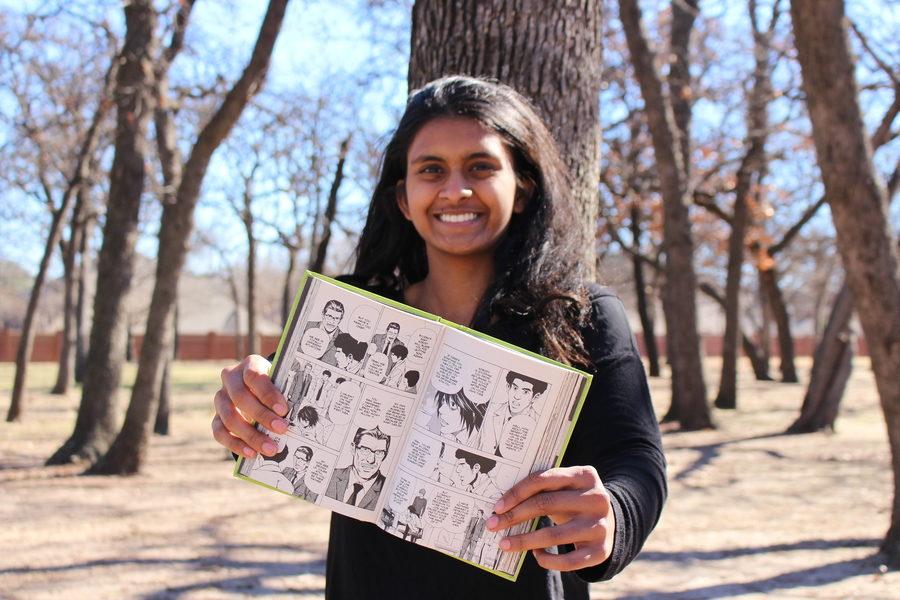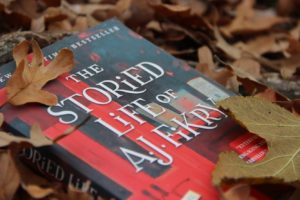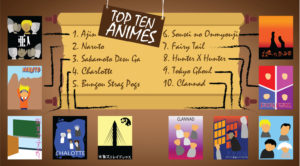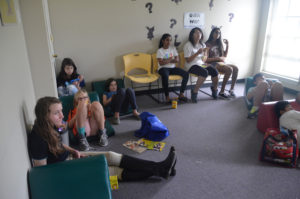Respecting all forms of storytelling
The Sidekick staff writer Pramika Kadari, displaying her manga book, Death Note by Tsugumi Ohba, thinks all forms of storytelling should be equally respected. In addition to graphic novels, Kadari thinks spending time watching television programing is a part of storytelling and beneficial.
January 22, 2018
As children, many are repeatedly told by their parents to stop wasting their time watching television, to switch out the screen for a book.
In school, teachers often refuse to accept graphic novels as “real books,” saying that students must choose something different to read. Among peers, avid anime-watchers are sometimes viewed as strange.
While reading traditional novels does have certain benefits over consuming graphic novels, anime or television, at their core they are all only variations of the same thing: storytelling. The idea that novels are the only respectable form of stories is nothing more than a long-standing stereotype burned into the general public’s mind.
Coppell High School creative writing teacher Matthew Bowden agrees that television has grown to the point where automatically judging it as a waste of time would be foolish.
“To say watching television isn’t intelligent is just outdated,” Bowden said. “I like fiction that points out and explores true things about human nature, and television can definitely do that.”
Graphic novels are generally criticized as well, for many believe they have nothing more to offer than mindless action and humor. However, despite the fact that I am an avid reader of traditional novels, some of my favorite stories are those of “manga” – Japanese graphic novels.
Out of the hundreds of traditional American books I have read, a large percentage are not as well written as manga such as Naruto, Hunter x Hunter, Death Note, Angel Beats and Fullmetal Alchemist. These series have well-developed characters, important themes and an interesting plot, just as most good books do.
“A lot of my favorite anime and TV shows have really big themes and ideas,” CHS senior creative writing and art student Kim McDonald said.
“Anime” is the common name for animated Japanese shows, and they are often adaptations of manga. Regarding almost all the manga mentioned above, their animated versions are nearly identical to the source material, and in some ways are actually a better version of it-simply because of the shows’ added elements that are impossible to display on the page of a book. The same idea applies to movies and American television.
“There’s so many fantastic aspects of anime and movies,” McDonald said. “You have the awesome cinematography, art and animation, as well as the soundtrack.”
Although I love these alternative forms of storytelling, it is undeniable that reading fiction does do things for people that watching fiction cannot do.
“When you read, you build reading stamina, which is important for anyone,” Bowden said. “The more you read, the more you develop your vocabulary, too. Reading also helps you grow as a writer, which you won’t get from television.”
However, the fact that reading provides benefits that other forms of storytelling cannot does not mean these other forms are a waste of time or unintelligent. I am not saying that reading is not an amazing thing to do, but we should respect all stories, regardless of whether they are portrayed through ink on a page or pixels on a screen.
Follow Pramika @pramika_kadari














